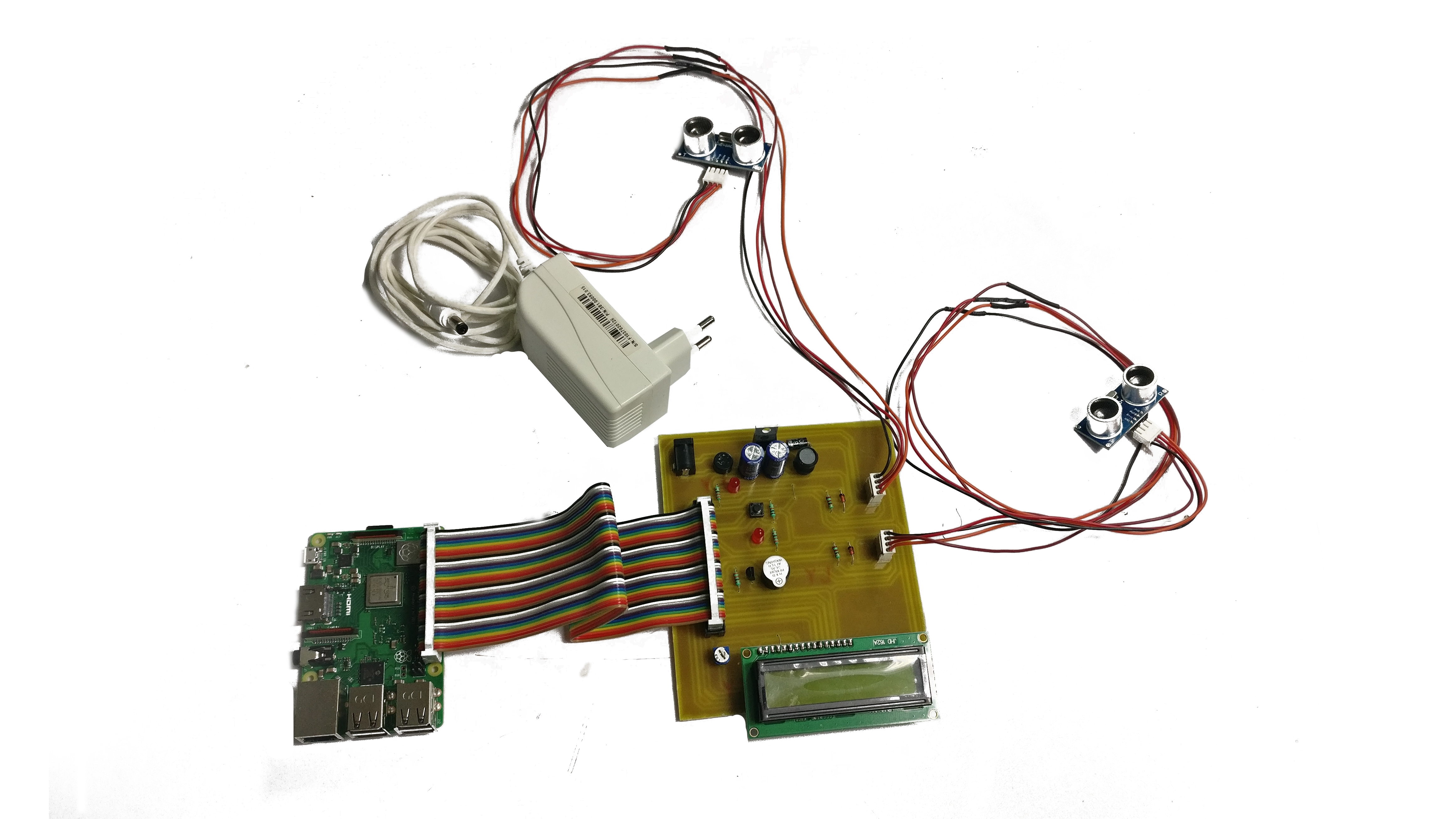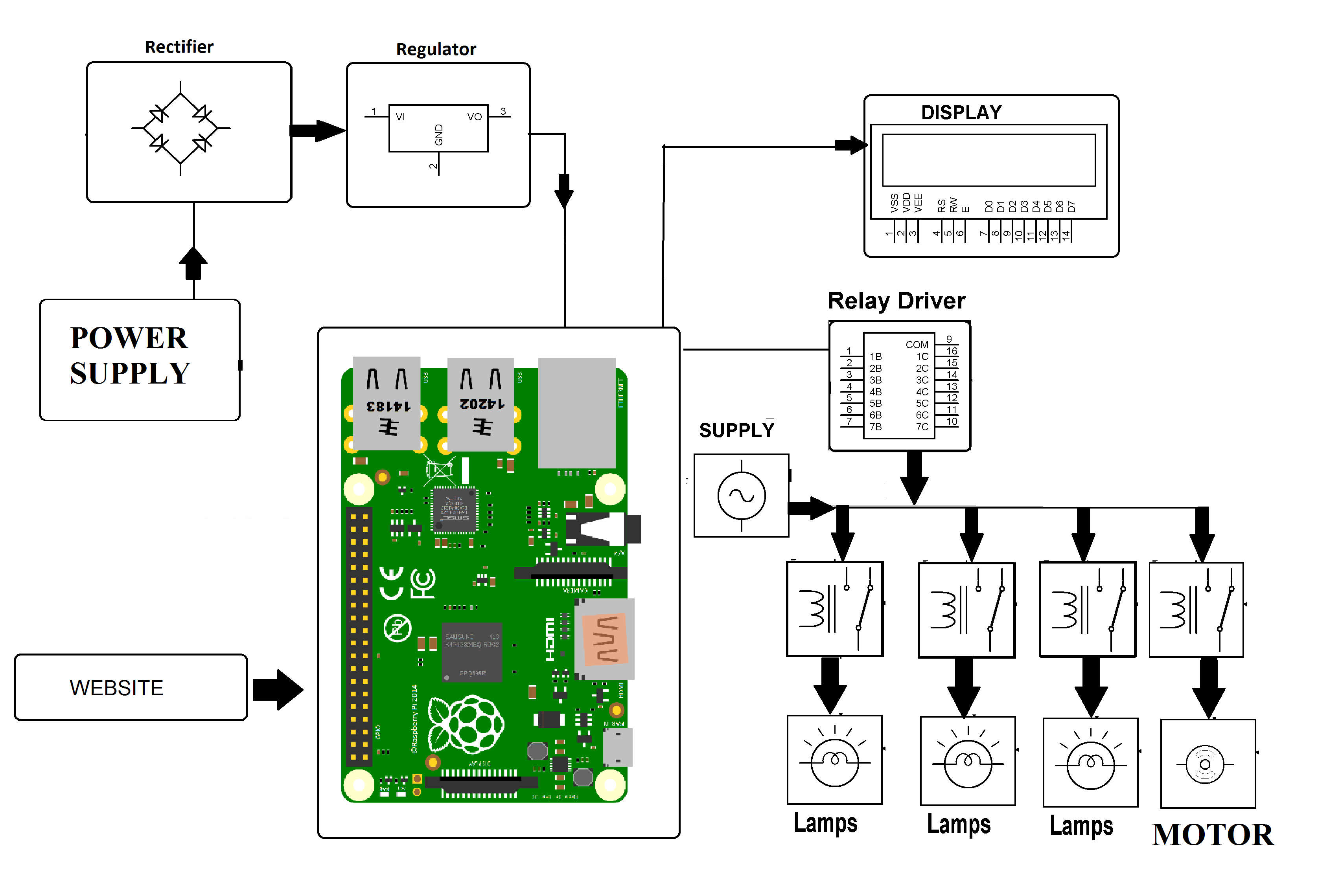Revolutionizing Connectivity: Raspberry Pi VPC IoT Projects
Are you ready to dive into the world of Raspberry Pi VPC IoT projects? In today's tech-driven era, the Internet of Things (IoT) is no longer just a buzzword but a game-changer for industries and individuals alike. Whether you're a tech enthusiast, hobbyist, or professional developer, Raspberry Pi has become the go-to platform for creating innovative IoT solutions. In this article, we’ll explore how Raspberry Pi VPC IoT projects can transform the way we interact with technology and simplify our daily lives.
Let’s face it, the Raspberry Pi isn’t just some random gadget—it’s a powerhouse that can turn your wildest ideas into reality. From home automation to smart agriculture, the possibilities are endless. And when you combine it with VPC (Virtual Private Cloud), you’re opening the door to a whole new level of scalability and security for your IoT projects. So, buckle up because we’re about to take you on an exciting journey through the world of Raspberry Pi VPC IoT projects.
Now, why should you care about this? Well, if you’ve ever wanted to create something that connects devices, collects data, or automates tasks without breaking the bank, Raspberry Pi is your ultimate ally. This tiny yet mighty device has been revolutionizing the maker community for years, and with the addition of VPC, it’s become even more powerful. Trust me, once you see what you can build, you’ll be hooked.
- Burger King Plane Incident The Inside Story You Didnrsquot Know About
- Martin The Parisian Agency Your Ultimate Guide To Elevating Your Brand In Paris
What Are Raspberry Pi VPC IoT Projects?
Raspberry Pi VPC IoT projects refer to the integration of Raspberry Pi devices with Virtual Private Cloud (VPC) infrastructure to develop Internet of Things applications. VPC allows you to securely host and manage your IoT backend services in the cloud, ensuring your data remains protected while enabling seamless communication between devices. Think of it as giving your Raspberry Pi projects superpowers to handle complex tasks without worrying about infrastructure limitations.
Here’s why this combination is a game-changer:
- Enhanced Security: VPC provides a secure environment for your IoT devices, reducing the risk of unauthorized access.
- Scalability: You can easily scale your projects as your needs grow, thanks to the flexibility of cloud-based solutions.
- Cost-Effective: By leveraging the power of Raspberry Pi and cloud services, you can build robust IoT systems without spending a fortune on hardware.
So, whether you’re building a smart home system, monitoring environmental conditions, or creating an industrial automation solution, Raspberry Pi VPC IoT projects can help you achieve your goals.
- Average Salary For Sonographers Unlocking The Secrets Of Your Dream Career
- Macaulay Culkin Height The Inside Scoop On Hollywoods Beloved Child Star
Why Choose Raspberry Pi for IoT?
When it comes to IoT development, Raspberry Pi stands out for several reasons. First and foremost, it’s affordable yet packed with features that make it perfect for both beginners and experienced developers. Here’s a quick rundown of what makes Raspberry Pi so special:
Cost-Effective Solution
Raspberry Pi boards are incredibly affordable, making them accessible to hobbyists and startups alike. With prices starting at around $35, you get a fully functional computer that can run Linux and support a wide range of applications. And let’s be honest, who doesn’t love saving money while building cool stuff?
Extensive Community Support
One of the biggest advantages of using Raspberry Pi is the massive community behind it. From forums to YouTube tutorials, there’s no shortage of resources to help you get started and troubleshoot any issues you might encounter. This means you’ll never feel stuck or alone on your IoT journey.
Flexibility and Versatility
Raspberry Pi is incredibly versatile, capable of handling everything from simple automation tasks to complex machine learning applications. Its ability to interface with various sensors, cameras, and other peripherals makes it ideal for a wide range of IoT projects.
Understanding VPC in IoT Projects
Now that we’ve established why Raspberry Pi is such a great choice for IoT, let’s talk about VPC and its role in these projects. Virtual Private Cloud (VPC) is essentially a private network within a public cloud environment. It allows you to isolate your resources, ensuring they’re secure and only accessible by authorized users.
Here’s how VPC enhances your Raspberry Pi IoT projects:
- Data Privacy: VPC ensures that sensitive data collected by your IoT devices remains private and secure.
- Network Isolation: You can create separate networks for different projects, preventing interference and improving performance.
- Customizable Security: With VPC, you have full control over security settings, including firewalls and access controls.
In short, VPC adds an extra layer of security and flexibility to your Raspberry Pi IoT projects, making them more reliable and scalable.
Setting Up Your First Raspberry Pi VPC IoT Project
Ready to get started? Setting up your first Raspberry Pi VPC IoT project is easier than you might think. Follow these simple steps to get your project up and running:
Step 1: Gather Your Materials
Before you begin, make sure you have the following:
- Raspberry Pi board (any model will do)
- MicroSD card with Raspberry Pi OS installed
- Power supply
- Internet connection
- A cloud provider account (e.g., AWS, Google Cloud, or Azure)
Step 2: Configure Your Raspberry Pi
Once you have all the necessary components, it’s time to set up your Raspberry Pi. Start by connecting it to a monitor, keyboard, and mouse, then power it on. Follow the on-screen instructions to complete the initial setup.
Step 3: Set Up VPC in the Cloud
Next, log in to your cloud provider account and create a new VPC. Configure the network settings according to your project requirements, making sure to enable secure access for your Raspberry Pi.
Step 4: Connect Raspberry Pi to VPC
Finally, connect your Raspberry Pi to the VPC by configuring its network settings. You can do this by editing the configuration files or using a graphical interface, depending on your preference.
And that’s it! Your Raspberry Pi is now ready to start collecting and processing data within a secure VPC environment.
Popular Raspberry Pi VPC IoT Projects
Now that you know how to set up your Raspberry Pi VPC IoT project, let’s look at some popular ideas to inspire your next creation:
Smart Home Automation
Use Raspberry Pi to control lights, thermostats, and other smart home devices. With VPC, you can securely manage these devices from anywhere in the world.
Environmental Monitoring
Create a system to monitor temperature, humidity, air quality, and other environmental factors. This can be especially useful for agriculture or industrial applications.
Security Surveillance
Build a DIY security camera system using Raspberry Pi and a camera module. Store and analyze video footage in the cloud for added convenience.
Industrial Automation
Automate repetitive tasks in manufacturing or production environments using Raspberry Pi and VPC. Improve efficiency and reduce costs with smart automation solutions.
Challenges and Solutions in Raspberry Pi VPC IoT Projects
While Raspberry Pi VPC IoT projects offer endless possibilities, they do come with their own set of challenges. Here are some common issues and how to overcome them:
Security Concerns
One of the biggest challenges in IoT is ensuring data security. To address this, make sure to implement strong authentication mechanisms and regularly update your software to patch vulnerabilities.
Network Connectivity
Poor network connectivity can disrupt your IoT projects. To avoid this, use a reliable internet connection and consider setting up a local network for critical devices.
Data Management
Handling large amounts of data can be overwhelming. Use cloud-based storage solutions and data analytics tools to manage and analyze your data efficiently.
Tools and Resources for Raspberry Pi VPC IoT Projects
Here’s a list of tools and resources that can help you with your Raspberry Pi VPC IoT projects:
- Raspberry Pi Documentation: Official guides and tutorials for Raspberry Pi users.
- AWS VPC: A powerful VPC solution for managing cloud resources.
- Instructables: A community-driven platform with tons of DIY project ideas.
Future Trends in Raspberry Pi VPC IoT Projects
As technology continues to evolve, so do the possibilities for Raspberry Pi VPC IoT projects. Here are some trends to watch out for:
- Edge Computing: Processing data closer to the source for faster response times.
- AI Integration: Incorporating artificial intelligence to enhance the capabilities of IoT devices.
- Sustainability: Developing IoT solutions that promote environmental sustainability and energy efficiency.
Conclusion
In conclusion, Raspberry Pi VPC IoT projects offer a world of opportunities for innovation and creativity. By combining the power of Raspberry Pi with the security and scalability of VPC, you can build robust IoT systems that meet your needs and exceed your expectations.
So, what are you waiting for? Grab your Raspberry Pi, set up your VPC, and start building the next big thing. And don’t forget to share your projects with the community—you never know who you might inspire!
Table of Contents
- What Are Raspberry Pi VPC IoT Projects?
- Why Choose Raspberry Pi for IoT?
- Understanding VPC in IoT Projects
- Setting Up Your First Raspberry Pi VPC IoT Project
- Popular Raspberry Pi VPC IoT Projects
- Challenges and Solutions in Raspberry Pi VPC IoT Projects
- Tools and Resources for Raspberry Pi VPC IoT Projects
- Future Trends in Raspberry Pi VPC IoT Projects



Detail Author:
- Name : Lola Hirthe
- Username : gisselle.kassulke
- Email : darrick94@zemlak.com
- Birthdate : 1986-08-08
- Address : 90654 Haley Wells Suite 776 Rigobertohaven, VT 71275
- Phone : (262) 976-6421
- Company : Metz Ltd
- Job : Airframe Mechanic
- Bio : Ea omnis molestias et atque eum. Incidunt rerum at sit sed. Fugiat perspiciatis est beatae autem voluptatibus non cupiditate.
Socials
linkedin:
- url : https://linkedin.com/in/rippinh
- username : rippinh
- bio : Et qui occaecati laborum debitis.
- followers : 5015
- following : 861
facebook:
- url : https://facebook.com/hertha9439
- username : hertha9439
- bio : Aperiam voluptatem modi ut ex autem repellendus.
- followers : 5448
- following : 87